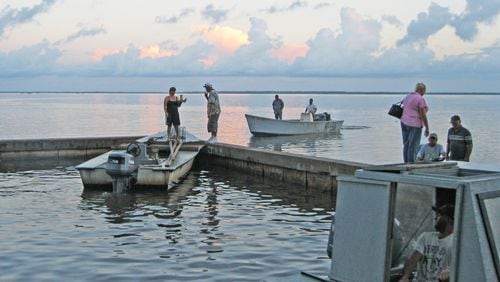Is Atlanta hogging the Chattahoochee River? Is Georgia responsible for the demise of Florida’s oyster industry? Will metro Atlantans be able to water their lawns in the future?
These and other critical questions undergird the “water war” between Georgia and Florida set to begin this morning in a bankruptcy courtroom in Portland, Me. Nearly three decades of litigation and government (in)action come to a head before a no-nonsense Yankee judge appointed by the U.S. Supreme Court.
Here are five things you need to know about the trial:
1) It’s very important. Florida accuses Georgia of keeping the Chattahoochee and Flint rivers from flowing abundantly into the Sunshine State to the detriment of its oyster industry, economy and environment.
2) It’s in Portland because a courtroom in Washington, D.C. wasn’t available for the two months the trial might endure. The Supreme Court appointed Ralph Lancaster as the special master to adjudicate the case. Lancaster lives in Portland.
3) The burden of proof rests with Florida which first must convince the master that it’s environment and economy have been harmed by too little water from Georgia.
4) Florida unspools its case first this morning. Georgia is expected to follow. Witnesses will then be called, including Harold Reheis who ran Georgia’s water programs from 1992 to 2003.
5) It may not end here. Even if the Supreme Court takes up the case upon Lancaster’s recommendation there’s still time for Georgia and Florida to work out a deal.
You can read all about it here:
About the Author







